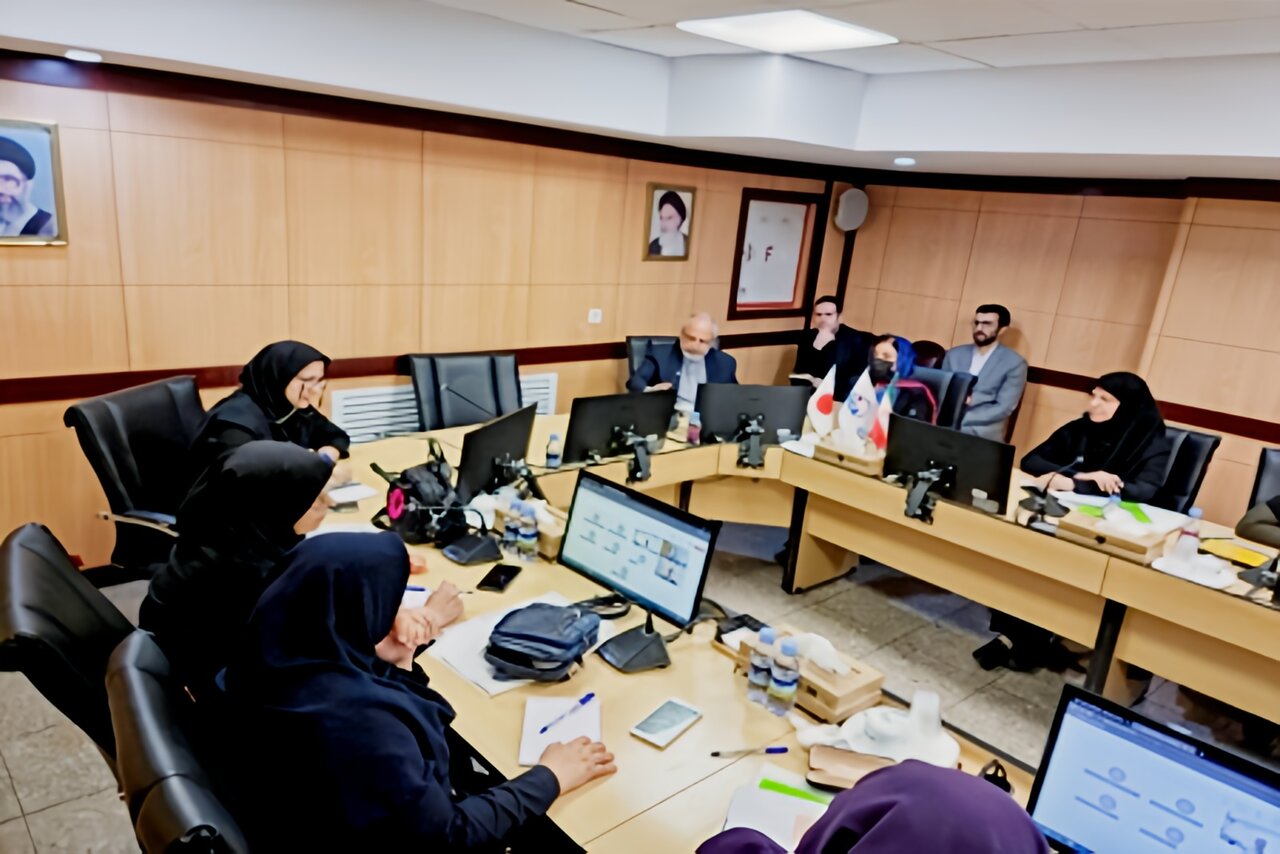Japan’s expertise to help Iran improve medical services

TEHRAN – The health ministry in cooperation with Japan has held an online elderly care course within the framework of a former agreement aiming to improve medical services in Iran through Japan’s medical management models.
Organized by Fujita Health University, the course was held on October 7. Mohammad-Hossein Niknam, the deputy health minister for international affairs, Tamaki Tsukada, the Japanese ambassador to Iran, and Peyman Saadat, the Iranian Ambassador to Japan, were among the participants.
Saying that Iran is among the countries with the highest medical standards, Tsukada highlighted the significance of health in the two countries and said the course aims to share experiences and successful programs that have been implemented in Japan to improve the knowledge and awareness of the participants, the health ministry’s website reported.
The official also announced Japan’s readiness to develop ties in all other fields of health with the country.
Niknam, for his part, said that the cultural and historical ties of the two countries as well as their high capacities are key factors in enhancing cooperation in all aspects of the health sector.
Lauding Japan’s efforts, the Iranian ambassador to Japan said the fact that the world population is aging necessitates the need to reflect on its diverse consequences in medical, economic, and social sectors, as well as the need to implement inter-sectoral solutions to address the challenges.
Healthcare agreement
On November 24, 2019, the Japan International Cooperation Agency (JICA) and the Ministry of Health and Medical Education (MOHME) of the I.R. Iran signed a Record of Discussions (R/D) for the Project for Improving Medical Services in the Islamic Republic of Iran through Japan's Medical Management Models.
The project will help to ensure the improvement of the medical services for patients with non-communicable diseases including elders through the dissemination of knowledge and experience about advanced cases and medical policies in Japan.
It will contribute to the achievement of SDG Goal 3 in the Islamic Republic of Iran.
In Iran, the structure of diseases has been converted from a focus on maternal and child health and communicable diseases to non-communicable diseases in the past 20 years.
The mortality rate for children under 5 has been reduced from 30.6 in 2002 to 14.4 in 2018 and the maternal mortality rate has been reduced to 25 (in 100,000 ) in recent years.
In addition, the life expectancy in Iran has been extended from 53.9 in the 1970s to 76 in 2018. According to the statistics in 2010, 76 percent of deaths in Iran were caused by NCDs, 46 percent of which were caused by cardiovascular diseases (CVD), 13 percent by cancer, 4 percent by chronic respiratory diseases, 2 percent by diabetes and 11 percent by other NCDs. Communicable diseases has also made 10 percent of the overall cause of death in Iran.
In response to these issues, the Ministry of Health and Medical Education of the Islamic Republic of Iran has decided to improve the quality of healthcare services by improving medical facilities and equipment and capacity building of the health sector personnel.
Yukiharu Kobayashi, Chief Representative of the JICA Iran Office said: "With the signing of this R/D, Iran and Japan have made one crucial step to strengthening their mutual cooperation, and Iranian government officials will learn how Japanese medical facilities work and manage in the above-said fields, which subsequently improve the medical services in Iran."
This technical cooperation aims to develop human resources through learning about medical technology and management, which has been operating in Japan for many years. By implementing the said project, the medical services in Iran will be improved through policy recommendations in different fields of hospital management, medical care for elders, hospital design and construction, non-communicable diseases control, and cancer control and management.
By sharing the knowledge and experiences Japan has acquired in the said fields for many years, it is expected that patient-centered medical services introduced in Japan will be disseminated throughout Iran in the future.
Iran, Japan bolster ties
Health Minister, Mohammad-Reza Zafarqandi, and Tsukada, in a meeting in Tehran on October 6, discussed ways to boost cooperation in the field of health.
Referring to the health minister’s successful experience in handling Covid-19 outbreak, Tsukada said Iran can share its expertise and scientific achievements in the field with Japan and help transfer the knowledge to future generations, the health ministry’s website reported.
Tsukada went on to say that despite sanctions a number of Japanese companies are ready to develop cooperation in the field of health with Iran.
The official stated that Japan wants Iran to speed up the approval process for Japanese medical equipment to enter the country.
“Currently, Japan is funding projects to improve the healthcare system with advanced medical tools”, he noted.
“Japan has substantial experience in preventing diseases (like breast cancer), reducing their prevalence as well as minimizing the costs of treatments. Japan is willing to share these experiences with Iran,” he stressed.
The health minister, for his part, welcomed Japan’s proposal for sharing achievements and scientific knowledge on Coronavirus and other diseases, highlighting that in case new epidemics emerge in the world, shared knowledge and experiences can be greatly useful.
The official suggested establishing a working group to follow up on transferring knowledge in the field of screening and treating diseases like breast cancer and esophageal cancer, which are prevalent in Iran and Japan, respectively.
Zafarqandi lauded the Japan International Cooperation Agency (JICA) for donating 50 mammography systems to Imam Hossein (AS) and Arash hospitals in Tehran.
He highlighted the enhancement of cooperation between the two countries in the health sector and called for expanding the exchange of medical equipment, as well.
MT/MG
Leave a Comment